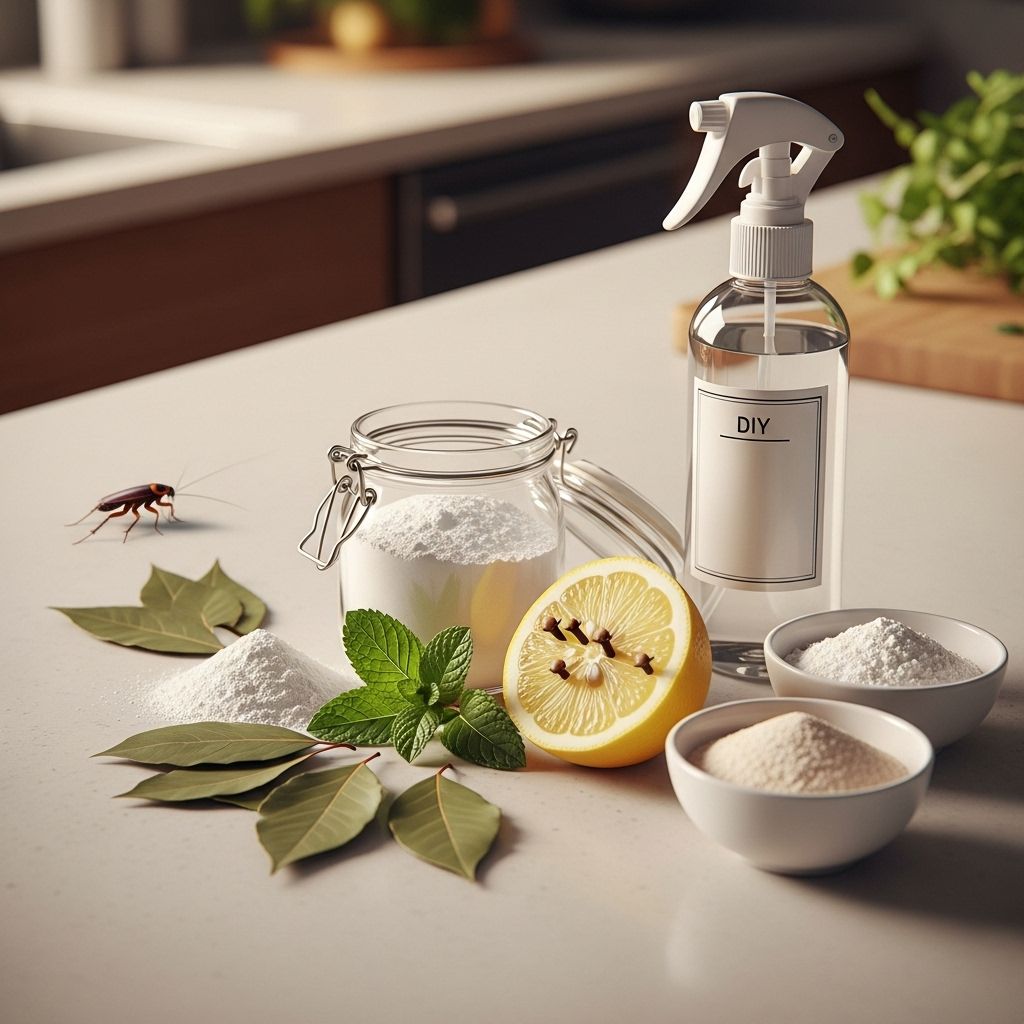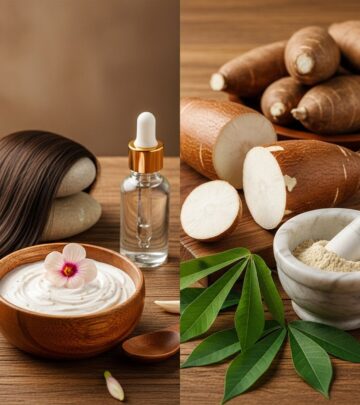Home Remedies for Roaches: Effective DIY Cockroach Control
Discover natural and DIY solutions to banish roaches from your home and keep your environment healthy, safe, and pest-free.

Cockroaches are unwelcome guests in any household. Not only are these pests unsightly, but they can contaminate food, aggravate allergies, and transmit disease. While professional extermination is available, there are several practical, affordable, and eco-friendly home remedies for roaches that you can apply yourself. This comprehensive guide explores the most effective DIY solutions and preventive strategies to help you reclaim your home from cockroach infestations.
Why Home Remedies for Roaches?
Many homeowners seek natural and DIY alternatives to chemical pesticides due to concerns about toxicity, costs, and environmental impact. Home remedies focus on accessible household ingredients and common-sense prevention, offering a safer option for families and pets. While not a substitute for major infestations requiring expert help, these remedies are a valuable first line of defense and can support ongoing pest management programs.
Top 10 Home Remedies for Roaches
Apply these remedies carefully and consistently for the best results. Always exercise caution and keep substances out of reach of children and pets if toxicity is a concern.
- Boric Acid
Boric acid is recognized as one of the most effective home treatments for roaches. When sprinkled in thin layers along baseboards, under appliances, and inside cracks, boric acid clings to roach legs. Upon ingestion through grooming, it disrupts their digestive system, leading to death. However, it should be used sparingly, as excessive application reduces effectiveness and can be hazardous if children or pets touch or ingest it.
Application: Sprinkle lightly in problem areas and avoid moist environments, as water deactivates the powder’s potency. - Baking Soda and Sugar Trap
Baking soda, when ingested by roaches, reacts with their stomach acids and causes their insides to expand, which is fatal. By mixing baking soda with an equal amount of sugar, you lure roaches to the bait.
Application: Mix sugar and baking soda in equal parts. Place the mixture in shallow lids or dishes near infested zones such as kitchen cabinets and under sinks. - Diatomaceous Earth
Diatomaceous earth (DE) is a fine, powdery substance composed of fossilized remains of aquatic organisms. When sprinkled along cockroach travel paths, it adheres to their exoskeleton and dehydrates them to death. Food-grade DE is non-toxic to humans and pets but avoid inhaling the dust.
Application: Lightly dust cracks, behind appliances, around baseboards, and in corners. Reapply as needed and vacuum residue after several days. - Bay Leaves
Bay leaves contain compounds that repel roaches, and although they do not kill them, they can encourage pests to leave your kitchen or pantry.
Application: Place dried bay leaves in affected drawers, cracks, and storage containers. - Soap and Water Spray
A simple soapy water mixture can suffocate roaches by blocking their breathing pores.
Application: Mix a teaspoon of liquid soap with water in a spray bottle and spray directly onto visible roaches. - Essential Oils
Certain essential oils (eucalyptus, lavender, tea tree, peppermint) have strong scents that repel roaches.
Application: Mix a few drops of essential oil with water and spray it in corners, under sinks, and along baseboards. - Lemon Juice
Lemon not only cleans but leaves a scent that cockroaches dislike.
Application: Mix lemon juice with water to mop floors or wipe down surfaces, especially in the kitchen and bathroom. - Mint Oil
Mint oil is a powerful deterrent against roaches.
Application: Add several drops to water and spray around cracks, behind appliances, and under sinks. - Neem Oil
Neem is a natural insecticide that can disturb the reproductive and digestive systems of roaches.
Application: Mix with water and apply in suspected infestation areas. - White Vinegar
Vinegar is not a direct killer but acts as a deterrent and cleaner to remove food residues attracting cockroaches.
Application: Wipe down affected surfaces with a vinegar solution daily.
Additional Natural Remedies for Roach Control
If you want to expand your arsenal, these home remedies can further help target cockroach problems, especially in combination with the above methods:
- Garlic, Onion, and Pepper Spray: Create a pungent mixture of garlic, onion, black pepper, and water. Spray in roach-prone areas to drive pests away due to the strong odor.
- Fabric Softener Spray: Mix fabric softener with water and spritz on roaches directly; the soapy film suffocates them.
- Listerine Spray: Combine mouthwash and water in a spray bottle for an alternative repellent spray.
- Petroleum Jelly Trap: Coat the inside of a glass jar with petroleum jelly and place bait (such as bread) inside. Roaches will climb in after the bait but get trapped by the sticky surface.
- Ammonia Solution: Pour ammonia and water down drains weekly to deter roaches from emerging through pipes.
- Clove Oil: Spray a diluted solution of clove oil to repel roaches with its intense aroma.
- Cucumber Slices: Fresh cucumber slices in kitchen corners can repel roaches, though this method is less potent than others.
Homemade Roach Bait & Trap Recipes
| Remedy | Main Ingredients | How it Works | Best for |
|---|---|---|---|
| Baking Soda & Sugar Trap | Baking soda, sugar | Kills roaches by internal reaction | Nesting sites, cabinets |
| Boric Acid Paste | Boric acid, flour, sugar | Sticks to roaches, ingested poison | Baseboards, under appliances |
| Diatomaceous Earth Dust | Diatomaceous earth | Dehydrates pest exoskeleton | Cracks, entryways |
| Petroleum Jelly Jar Trap | Petroleum jelly, food lure | Entraps roaches inside jar | Kitchens, hidden corners |
| Coffee Ground Water Trap | Used coffee grounds, water, jar | Roaches drown after entering for coffee | Near sinks, behind fridge |
| Cornstarch & Plaster of Paris | Cornstarch, plaster of Paris | Hardens inside after ingestion | Under appliances |
Preventing Roach Infestations: Essential Tips
No remedy is a true substitute for good sanitation and preventative action. Combining the following habits with the remedies above creates lasting protection:
- Seal Entry Points: Cockroaches squeeze through narrow gaps. Caulk cracks and crevices, and repair screens or weather-stripping on doors and windows.
- Keep Your Home Dry: Roaches need water to survive. Fix leaks, dry sinks at night, and ventilate damp areas to deprive them of moisture.
- Eliminate Food Sources: Store food in airtight containers. Wipe down counters, sweep floors, and avoid leaving dirty dishes or pet food out overnight.
- Declutter Regularly: Reduce hiding places by removing unused papers, cardboard boxes, and clutter, especially in kitchens and storage rooms.
- Maintain Garbage Discipline: Use bins with tight-fitting lids and empty them regularly to prevent attracting pests.
Are Roach Foggers, Sprays, and Traps Effective?
Roach foggers (insecticidal bombs) and aerosol sprays provide a quick knockdown of exposed pests but rarely address a full cockroach infestation. They have limited effectiveness since they cannot reach deep nesting sites in walls or under appliances.
Sticky traps and poison bait stations can monitor and control minor problems, but must be combined with sanitation and targeted home remedies for ongoing success.
When Should You Consider Professional Pest Control?
While home remedies and diligent cleaning are effective for small populations, severe or sustained infestations—indicated by day-time sightings, unusual odors, or roach droppings throughout the house—may require the expertise of a licensed pest professional. Professionals have access to specialized treatments and can identify hidden colonies you may miss with home methods alone.
Frequently Asked Questions (FAQ)
Q: Do natural remedies actually kill roaches or just repel them?
A: Remedies like boric acid, baking soda and diatomaceous earth can kill roaches, while substances such as bay leaves, mint oil, and lemon primarily repel them or disrupt their environment.
Q: Are these home remedies safe around children and pets?
A: Most remedies (baking soda, diatomaceous earth, essential oils) are relatively safe. However, keep boric acid and all powders or traps safely away from children and pets to avoid accidental ingestion or contact.
Q: How long does it take to see results from these remedies?
A: You may notice a reduction in roach activity within a few days, but sustained application over several weeks is necessary for best results. Persistence is crucial.
Q: Can I use several remedies at once?
A: Yes. Combining traps, repellents, and baits alongside thorough cleaning improves your chances of a roach-free home.
Q: What attracts roaches in the first place?
A: Food crumbs, standing water, clutter, accessible trash, and entry points such as cracks are common attractants. Tackle these factors with preventive strategies to enhance your home remedy success.
Conclusion: Take Back Your Home from Roaches
Cockroach infestations are a challenge, but home remedies, vigilant cleaning, and preventive measures offer powerful tools for protecting your household. Whether you opt for boric acid, baking soda, natural repellents, or a mix of methods, consistency is key.
Remember: if your home remedy efforts are not yielding results within a few weeks, contact a professional for advanced pest control solutions. With determination and the right techniques, your home can once again be a clean, safe, and roach-free space.
Read full bio of medha deb











